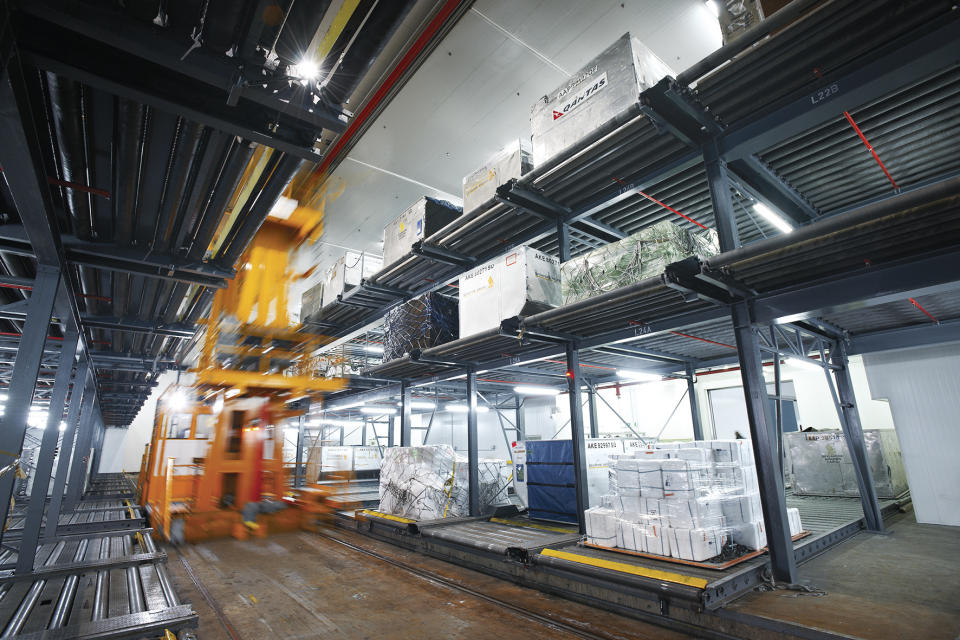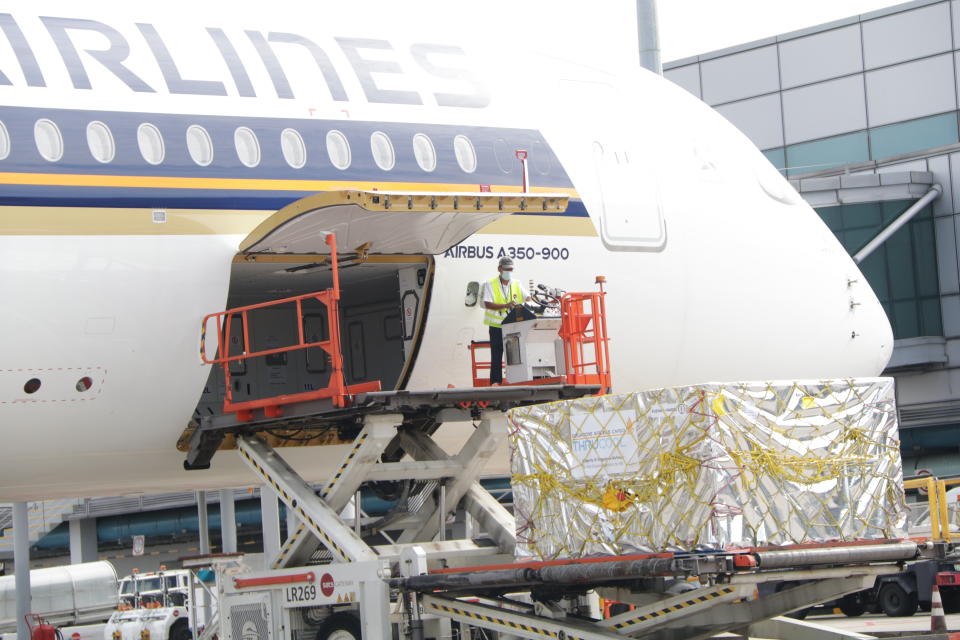Changi Airport air cargo hub ready to handle COVID-19 vaccines
SINGAPORE — With COVID-19 vaccines set to be transported and distributed globally over the coming months, the Civil Aviation Authority of Singapore (CAAS) and Changi Airport Group (CAG) gave the assurance on Tuesday (8 December) that their air cargo hub is ready.
The two authorities have set up the Changi Ready Taskforce, comprising 18 members from across the Changi air cargo community – airlines, freight forwarders, cargo handlers and government agencies – to deal with the logistics behind the worldwide operation.
Given that global COVID-19 vaccine distribution is at a very early stage, there is no date yet regarding the arrival of the first shipments of vaccines in Singapore.
“Vaccine movements have started, but not yet in a very good way,” said Chin Yau Seng, Singapore Airlines’ (SIA) senior vice-president (cargo).
“Suffice to say that there is clearly a need for vaccines around this region, so they will come to this part of the world at some point.”

Facilities capable of transporting, storing COVID-19 vaccines
Changi Airport’s air cargo hub is Asia Pacific’s first and largest community certified as a CEIV Pharma, or the Centre of Excellence for Independent Validators in Pharmaceutical Logistics, by the International Air Transport Association (IATA).
With at least one member in each node of the air cargo supply chain, the hub offers a well-connected cold chain that can effectively handle temperature-sensitive pharmaceutical shipments such as the COVID-19 vaccines.
Nonetheless, given the massive scale of logistical operation in distributing the COVID-19 vaccines, the Changi Ready Taskforce has begun to prepare the air cargo community to meet such demands.
For instance, Changi Airport’s cargo handlers Dubai National Air Transport Association (dnata) and SATS have been enhancing their infrastructure and equipment to support growing demand for transporting temperature-controlled cargo.
Their temperature-controlled warehouses CoolChain and Coolport cover more than 9,000 square metres, offering an annual cool-chain handling capacity of 375,000 tonnes with adjustable temperature ranges between -25°C and 25°C.
SATS and dnata have also recently introduced cool dollies – temperature-controlled containers designed specifically for temperature-sensitive goods to be transported without compromising their effectiveness. Multiple temperature-controlled truck docks, dry ice availability and round-the-clock shipment monitoring will also strengthen the airport’s ability to handle such goods.

Well-positioned to serve as regional hub
CAG has worked with its partners to ramp up charters and scheduled freighter operations since the onset of the COVID-19 pandemic. As of 1 December, weekly cargo flights at Changi Airport have tripled to more than 950 flights compared with end-2019. The airport is now connected to about 80 cities by weekly cargo flights.
SIA operates multiple weekly flights from each of the key European pharmaceutical export hubs, such as Amsterdam, Brussels and Frankfurt, and has an extensive network in Southeast Asia and Southwest Pacific. In addition, leading global integrators, such as DHL, FedEX and UPS, have established their regional hubs in Singapore with strong network connectivity from Changi Airport.
“We are well-positioned to play a critical role in distributing COVID-19 vaccines to Singapore and the region,” said Ho Yuen Sang, CAAS director (aviation industry).
“By bringing all players in the air cargo supply chain together through the Changi Ready Taskforce, CAAS and our partners can ensure the safe, reliable and effective transportation of these vaccines.”
With COVID-19 decimating passenger travel demand and severely affecting the aviation industry in Singapore, an efficient vaccine distribution around the region is imperative for the industry to recover from the setback, the authorities said.
“Widespread vaccine implementation is a very key part to the recovery of passenger traffic,” said Lim Ching Kiat, CAG’s managing director for air hub development and co-lead of the Changi Ready Taskforce.
“So we also have a very vested interest to make sure that, in Singapore and our nearby regions, the vaccine recovery is made as efficient and as quickly as possible, so that passenger recovery can begin as soon as possible.”
Stay in the know on-the-go: Join Yahoo Singapore's Telegram channel at http://t.me/YahooSingapore
More Singapore stories:
12 new COVID cases in Singapore, all imported
Singapore to host World Economic Forum meeting in May 2021 in place of Switzerland
E-scooter rider jailed 14 weeks after crashing into LTA officer
Man convicted of molesting school girls several times while walking past them



